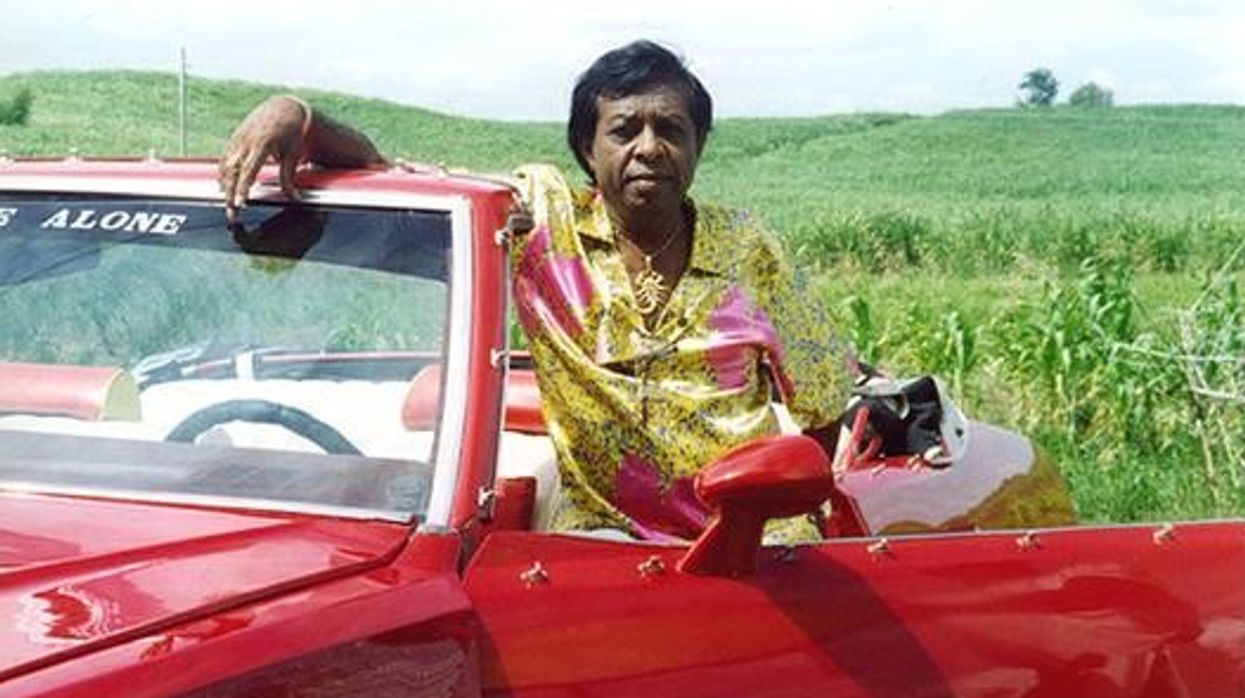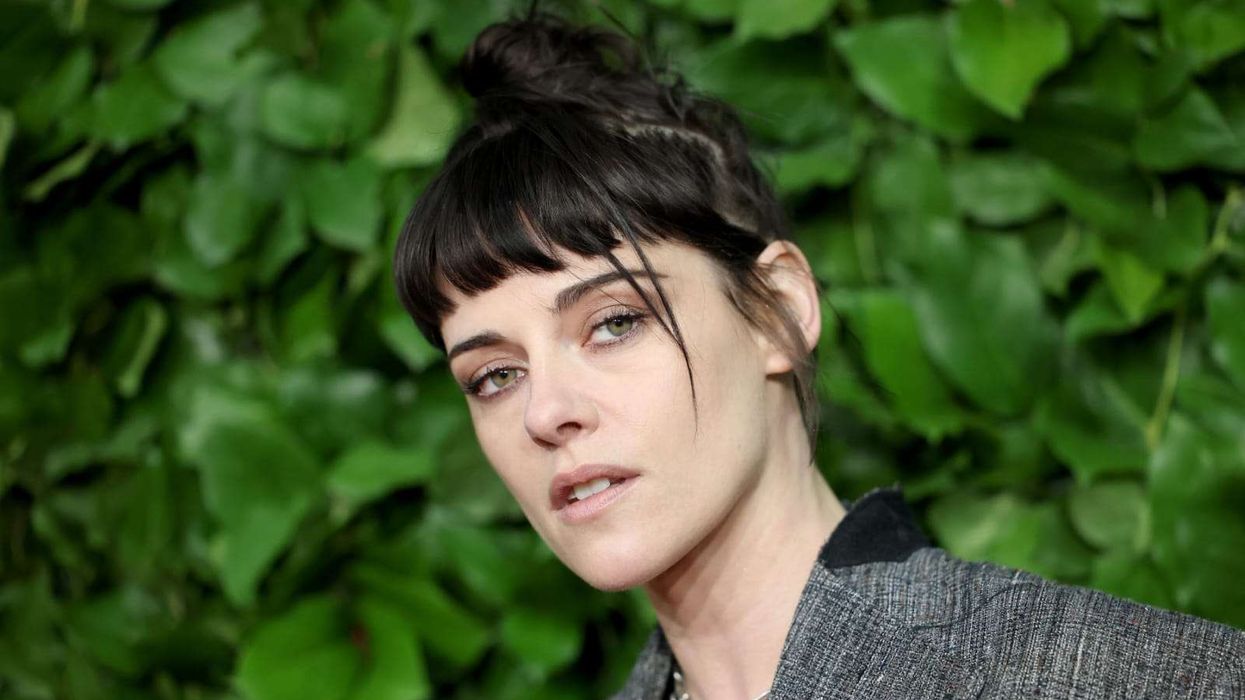His name may not be widely known outside the Caribbean, but Sundar Popo was a hugely influential singer and pioneer who ranks among the greats of world music.
He popularised, transformed, and effectively created an entire commercial musical genre that connected the large Caribbean community of Indian descent to their cultural roots.
Affectionately known as the father of chutney music, which blends Indian folk traditions with Caribbean genres like soca and calypso, he inspired generations of artists to follow in his giant footsteps. A true pathbreaker, Popo made a profound impact before his premature death on May 2, 2000, aged 56.
Eastern Eye marks the music icon’s death anniversary this week by revisiting his remarkable story.
Born on November 4, 1943, in the Barrackpore district of Trinidad, Popo grew up in a musical family. His mother was an accomplished singer, while his father was a talented tassa drummer.
From an early age, his Indo-Trinidadian parents introduced him to Indian folk traditions. Demonstrating natural musical ability, the gifted teenager began singing bhajans at temples, religious gatherings and weddings by the age of 15. He also trained in Indian classical music under Ustad James Ramsawak, all while working as a watchman. After quitting his job due to ill health, Popo devoted himself fully to music.
The turning point came in 1969, when Popo performed at a wedding in Princes Town. Leading radio announcer and promoter Moean Mohammed was in the audience and was so captivated by Popo’s talent, particularly his rendition of Nana and Nani, that he immediately decided to record and release it. Mohammed got the song recorded with the British West Indies Airways (BWIA) National Indian Orchestra. The multi-layered track about grandparents transformed Indo-Trinidadian music and effectively gave birth to chutney as a commercial genre.
Chutney music icon Terry Gajraj recalls how Nana and Nani inspired his own singing career. “When I was a young man, singing bhajans and kirtans in temples, I was a little lost as to who I was and what genre defined me. You had Bollywood songs, calypso, soca – but then with Sundar’s Nana and Nani, I knew it defined who I was. My ancestors came from India, but I was born in the West Indies. That song brought those two cultures together for me.”
Following the success of Nana and Nani, Popo focused on his music career. He released an album that fused Trinidadian music with traditional Indian folk styles, earning immediate popularity. He went on to produce more than 15 albums, mixing Trinidadian Hindi and English dialects with musical elements from both cultures.
Popo’s singles and albums were distributed across the Caribbean, South America, North America and Europe. By the 1980s, he was performing internationally and sharing the stage with major Indian stars like Amitabh Bachchan and Kishore Kumar. His reach expanded further when popular Mumbai-based duo Babla & Kanchan covered several of his songs, including Pholourie Bina Chutney, introducing him to new audiences.
Gajraj adds, “There are so many great songs of his that Indian artists covered. Babla & Kanchan became popular because of Sundar Popo’s songs.”
In total, Popo penned and recorded 165 songs, including Scorpion Gyul, A Mother’s Love, Oh My Lover, Don’t Fall in Love and Saas More Lage. These songs influenced generations of chutney artists. Gajraj said, “Sundar has been my greatest inspiration as a singer. He’s not just a legend – he’s the godfather of chutney music. Every single chutney singer has a little bit of Sundar Popo in them.”
Popo revolutionised the Indo-Caribbean music scene by fusing Indian folk melodies with calypso and soca rhythms. He took chutney music from the rural villages of Trinidad to international recognition. His songs – often about love, family and nostalgia – became timeless anthems.
He received numerous honours, including a National Award for Excellence. He also won the King of Chutney award in Florida in 1993 and later performed at the prestigious Madison Square Garden in New York during the late 1990s.
His music found fans across North America, Europe, India, Fiji, Mauritius, Guyana and Suriname.
Despite deteriorating health and eyesight, he continued to record and perform. During the 2000 Chutney Soca Monarch (CSM) competition, his performance had to be cut short after one song due to illness. CSM founder George Singh remembers that night vividly. “Sundar Popo was a musical giant, and everyone looked up to him. He loved music, and that passion came through on stage. Before that final CSM performance, it was clear his health was failing. I asked him if he was okay, and he said, ‘I will die on that stage if I have to.’”
Popo gave his final performance a month later, on April 1, in Connecticut. He passed away on May 2, 2000, from heart and kidney complications related to diabetes, at his home on Lal Beharry Trace in Monkey Town. His funeral was attended by family, friends, fans, members of the music fraternity and dignitaries, including then Trinidad and Tobago prime minister Basdeo Panday.
Popo’s statue was later unveiled by then prime minister Kamla Persad-Bissessar on May 29, 2011, in the Debe district of Trinidad and Tobago. The National Academy for the Performing Arts (SAPA) in San Fernando named an auditorium after him. His granddaughter, singer Natasha Sundar, is proudly carrying forward his musical legacy.
Today, the biggest names in chutney music – including Ravi B, Rikki Jai and Drupatee Ramgoonai – continue to pay tribute to him.
At the 2025 CSM competition, Terry Gajraj dedicated his performance to Popo and said, “All the artists pay tribute to Sundar Popo. He has influenced our music, lyrics and what we are trying to say. Almost every single chutney singer covers a Sundar Popo song. He was the greatest.”
A true pioneer, Popo enriched the musical landscape and touched the hearts of music lovers around the world.
Chutney media personality Vashtie Doorga believes he deserves recognition alongside the greatest Indian music legends. “Sundar Popo not only popularised an entire genre and inspired generations of artists, but built a bridge to India for the large Caribbean community with roots there. When we talk about the greatest artists of Indian descent, his name has to be in that conversation.”
Sundar Popo albums
■ Come Dance with the Champ (1979)
■ Hot & Spicy (with Anup Jalota) (1980)
■ Hot & Sweet (1981)
■ The Nana and Nani Man Sings Again (1982)
■ Sundar Fever (1985)
■ The Latest, The Greatest (1986)
■ Sundar Soca (1986)
■ Indian Soca (1987)
■ Screwdriver (1988)
■ Oh My Lover (1989)
■ Nana & Nani Don’t Cry (1989)
■ Sundar Popo’s Heartbreak (1990)
■ Who We Go Bring Back Again? (1991)
■ Is The Spaner She Want (1992)
■ Sweet Sweet Guyana (with Anand Yankaran) (1993)
■ Children Children Respect Your Mother & Father (1993)
■ Dance Party King (1994) ■ Classic (1994)
■ Cool Yourself With Cold Water (1995)
■ Musical Voyage: East Meets West (1998)
■ Unity (1998)
■ Friends (2000)




